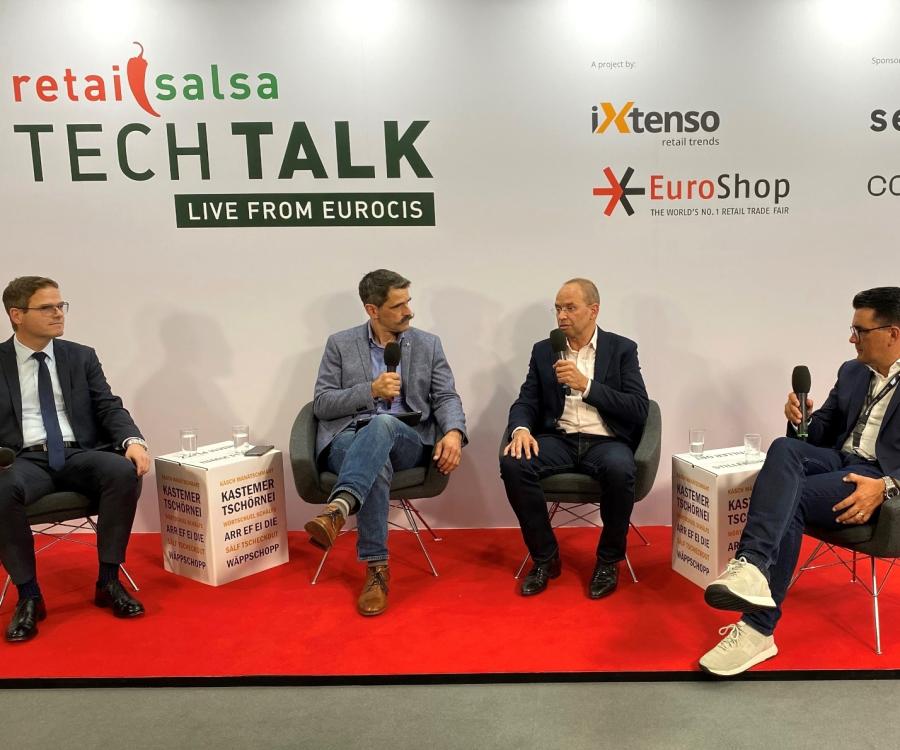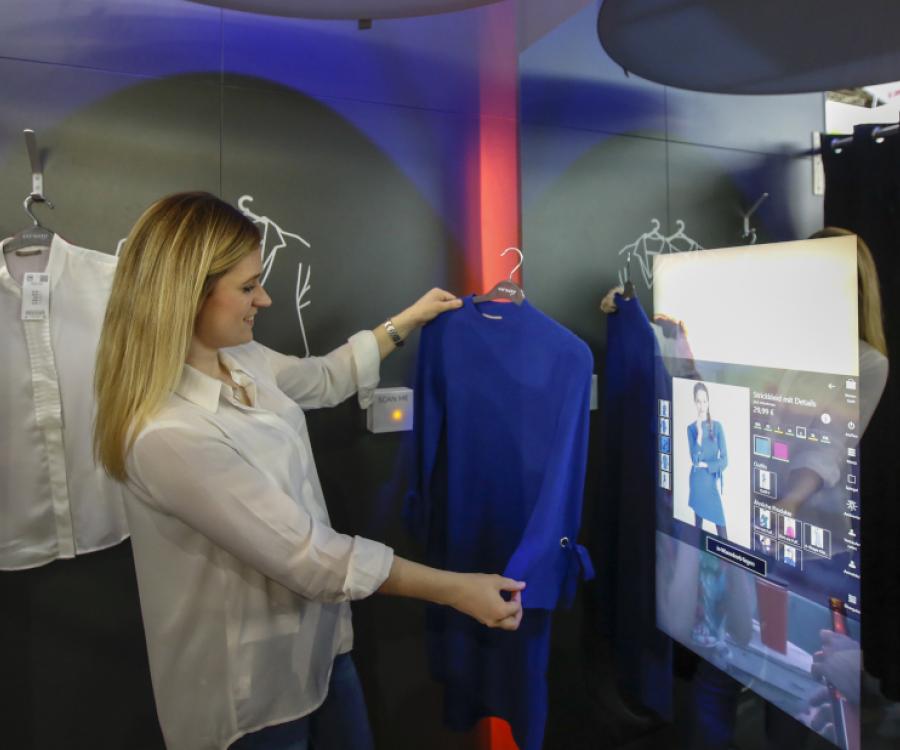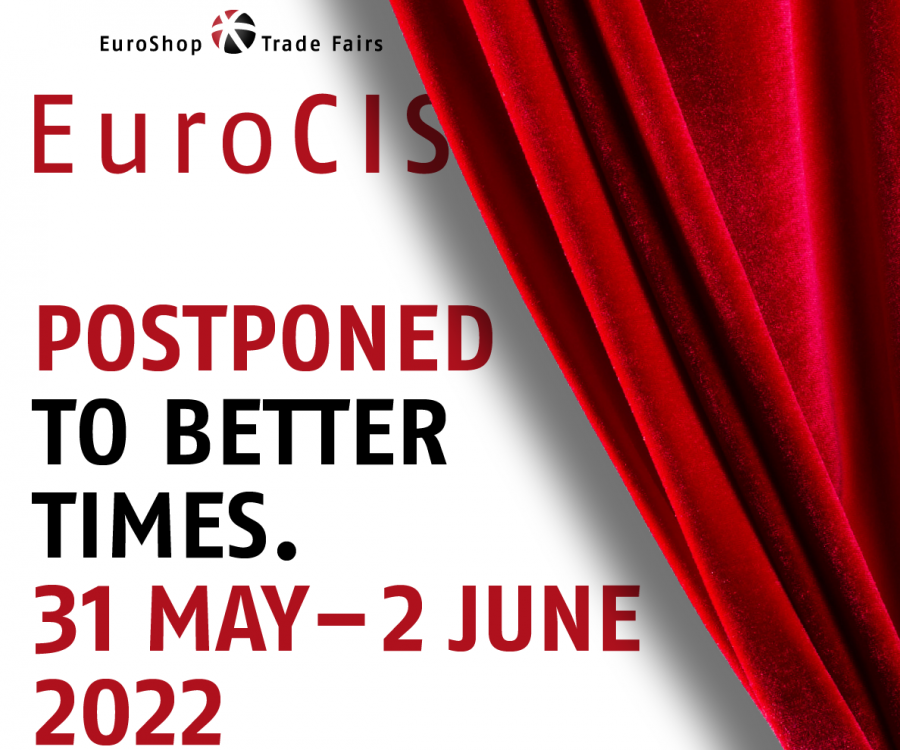
The cloud is becoming well established – not just in private data centres, but increasingly also in public networks. This is reflected in the 2017 Cloud Monitor of the Federal Association for Information Technology (Bitkom) and the consultancy firm KPMG. Two thirds of all German companies are apparently using cloud-based software, storage or processing power now. In particular, a boom can be observed in public cloud computing. According to Bitkom, around 30 per cent of companies surveyed are currently using IT services provided by public data networks – twice as many as two years ago. “Cloud computing has become accepted and has developed into a technical basis for digitisation within just a few years,” says Dr Axel Pols, Managing Director of Bitkom Research.
Unlike a private cloud, where a company operates its own cloud infrastructure at its own data centre or through an external contractor, a public cloud involves a shared infrastructure. Customers of a public cloud provider share the same physical infrastructure, and their separation from one another is based on a virtualised security infrastructure, so that separation is no more than logical. The big players on the public cloud market include the market leader Amazon Web Services (AWS) as well as Microsoft Azure, Google and IBM. According to the IT research and consultancy firm Crisp Research, these companies have a market share of over 75 per cent. The market research company Gartner forecasts that, by 2020, revenues from public cloud services will have doubled to over $380 billion compared with today, driven above all by rising demand from corporate customers. According to the analysts, many industries are developing a “cloud first” mentality with regard to business software.
Investments in data privacy should convince German companies
The most frequently quoted sales arguments of cloud providers are the fast scalability, cost effectiveness and low maintenance of cloud-based IT resources and software – benefits which can be leveraged by public cloud models, in particular. Yet, until recently, customers felt that such benefits were largely offset by data privacy concerns. To give German companies an alternative to moving their data to the United States, some leading public cloud providers have therefore invested in creating German data centres over the last two years. Alongside AWS, cloud services “made in Germany” are now also provided by Salesforce, IBM, Oracle, Google, Microsoft and Cisco. Microsoft and Cisco are collaborating with T-Systems, a subsidiary of Deutsche Telekom. Also, by offering Open Telekom Cloud, Deutsche Telekom has now been running its own German cloud-based IT resources since 2016.
On the technical side, too, cloud providers are steadily making progress in the development of security and data privacy. Microsoft, for instance, says that its service Azure Confidential Computing is the first one of its kind to allow the processing of encrypted data in public cloud services. It means that sensitive customer data can be used, for instance, for machine learning analyses without requiring explicit prior encryption followed by subsequent decryption. Moreover, companies are continually endeavouring to simplify the technology involved in operating hybrid models. A hybrid cloud combines a secure private cloud with additional, quickly scalable, low-maintenance resources from a public cloud. Depending on a company’s requirements in terms of security, data privacy, access speed, availability and scalability, some applications therefore run in the private cloud, and others in the public cloud.
Retail trade increasingly interested in cloud services
When it comes to cloud services, IT decision-makers include both enthusiasts and sceptics. According to a survey by the EHI Retail Institute, “IT Trends in the Retail Trade 2017”, 55 per cent of this group are already expecting to see a high or even rising significance of cloud services for their industries in the future. Conversely, 45 per cent believe that the cloud is and will continue to be of lesser significance for them.
A frequent objection that is presented is that cloud-based rental solutions are hard to predict and, in the long term, do not produce any of the hoped-for cost savings. Moreover, IT managers are concerned about losing control. Many have no confidence that cloud providers can guarantee the necessary requirements on high-performance systems at all times. This is why core processes such as ERP and POS systems are still largely running in dedicated data centres.
Omnichannel drives companies into the cloud – latest cloud solutions to be presented at EuroCIS 2018
Yet pressure to adjust existing IT architectures to the requirements of a modern omnichannel enterprise might fuel a rethinking process among retailers. To remain competitive, retailers must have a real-time overview of their central processes on all channels. At the same time, they need to reduce the complexities of their system landscapes, so that they can reduce costs and achieve better development speeds. At EuroCIS 2018 leading software suppliers will therefore showcase not only traditional on-premise options, but also cloud versions: “In the short term,” says, for instance, Rene Schiller, Director of Communications & Investor Relations at GK Software, “we are anticipating that our big international customers will increasingly want to run their solutions in a cloud or will want to have this done for them by third parties.” His company’s latest omnichannel software application OnlyPOS, he says, can be used under a variety of cloud options, and the first projects are now in progress.
SAP is currently reporting more growth in its cloud business than in its traditional licence business. The software group has recently added further cloud expertise after acquiring cloud providers such as Success Factors (HR software), Ariba (retail solution), Concur (travel expense accounting) and Fieldglass (external workforce management). Furthermore, by running its own cloud-based developer platform, SAP has enabled customers and partners to create innovative program modules and apps by themselves, such as enhancements to ERP S4/Hana.
Also, Microsoft has been saying for years that the cloud can offer customers added value such as lower investment costs and higher availability. Quite a while ago, in September 2009, Steve Ballmer, then CEO of Microsoft, noted that the migration of applications and services from the user to the cloud – and thus their ubiquitous availability – was a “fundamental transformation of the computer paradigm”. “He was ahead of his time then, but we are now in the midst of this digital transformation,” says Armin Schneider-Lenhof from KUMAVISION AG. Being a specialist in ERP and CRM software based on Microsoft Dynamics, he mainly has small to medium-sized customers from industry, the retail trade and the service sector. For about a year now the company has also had a cloud solution for retailers in its portfolio. The cloud enables an SME to respond faster and more flexibly to changes on the market, new regulatory requirements and demand fluctuations, yet without the need for long-term commitments through the purchase of hard and software.
Moreover, as the infrastructure and operation of the service are both managed entirely by the service provider, such systems are considerably more simple to use: “More than ever before, companies must ask themselves whether the full-scale operation of an IT system on their own is really one of their core competencies,” says company spokesman Schneider-Lenhof.
Cloud-based artificial intelligence
One megatrend that is associated with cloud computing and which is also likely to feature in discussions at EuroCIS should be artificial intelligence (AI). “As we see it,” says Rene Schiller from GK Software, “the digitisation of the retail trade will reach a new level through the computing capacity of the cloud, coupled with processes, solutions and also self-learning algorithms designed to accelerate and improve processes.” EuroCIS will feature the latest solutions in personalisation, marketing automation and dynamic pricing that will bring together cloud computing, predictive analytics and artificial intelligence.









